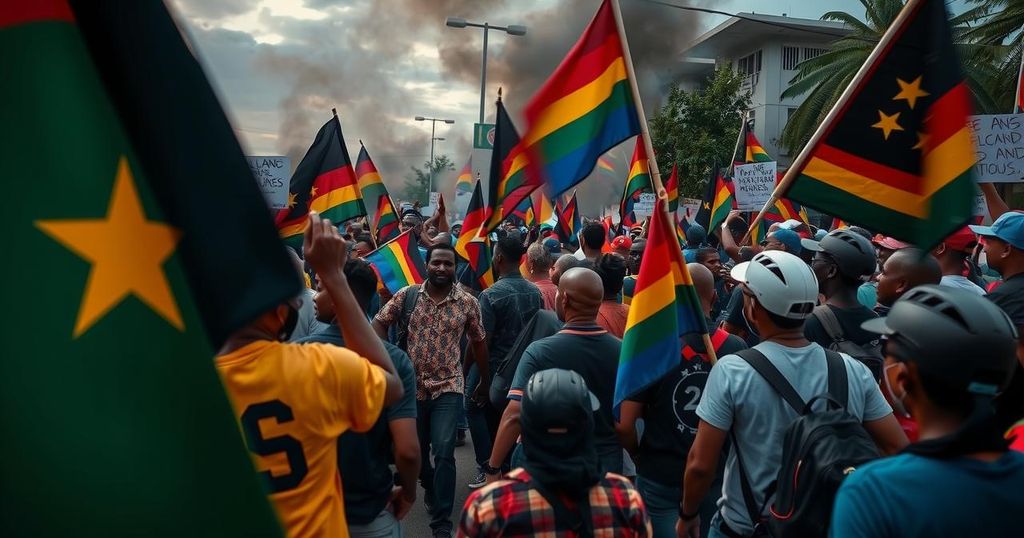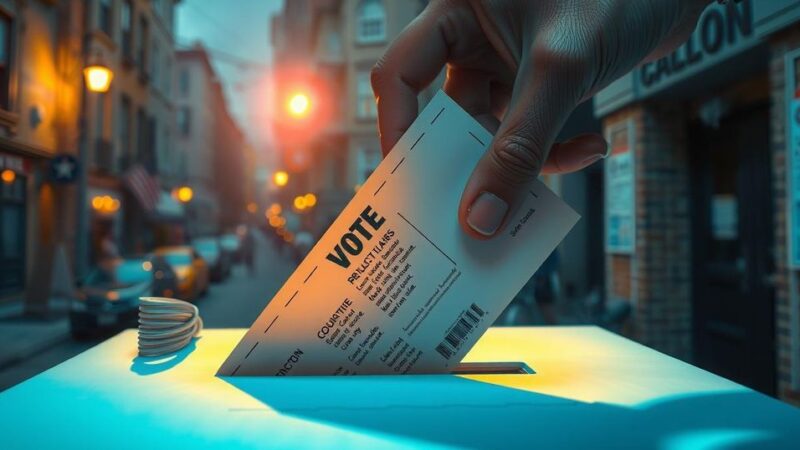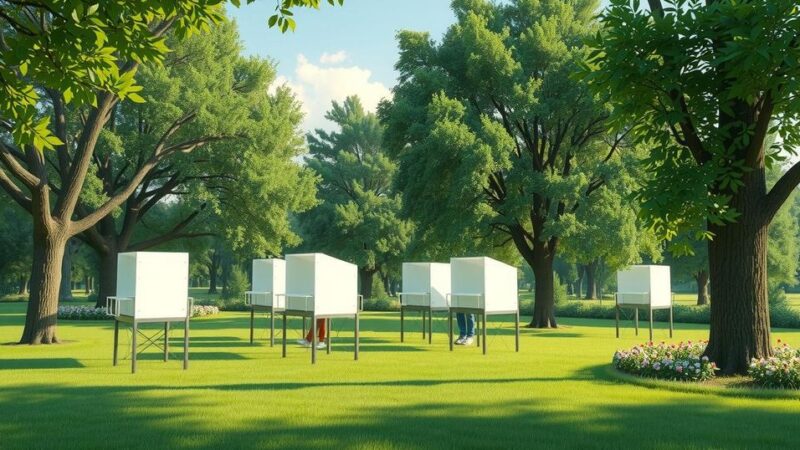Mozambique has imposed a protest ban after violent unrest following a disputed election won by the ruling Frelimo party. With at least 18 reported deaths and accusations of electoral fraud, Interior Minister Pascoal Ronda labeled the protests as “acts of terrorism,” urging cooperation from citizens to restore order. The government has also restricted internet access to suppress dissent, drawing criticism from rights groups.
The government of Mozambique has enacted a ban on protests in response to ongoing violence following a contested presidential election that resulted in multiple fatalities and injuries. In a recent election held last month, the ruling Frelimo party secured victory with over 71% of the votes, a result that has faced accusations of unfairness from opposition parties. The aftermath has been marked by violent protests, police confrontations, and tragic loss of life, with some human rights organizations reporting over 30 deaths since unrest began. Amidst the chaos, the Interior Minister, Pascoal Ronda, has urged citizens to collaborate with authorities to quell the unrest, which he characterizes as “acts of terrorism.” Protests erupted shortly after the election results were announced, leading to violent confrontations in the capital, Maputo. In an attempt to restore order, military forces have been deployed, and harsh measures have been taken against demonstrators, including the use of tear gas and rubber bullets by police. Ronda condemned these demonstrations, suggesting they disrupt daily life and described those responsible as having ulterior motives aimed at destabilizing the nation. Furthermore, the government has restricted internet access to curb public dissent, an action criticized by organizations such as Human Rights Watch. Opposition leaders have voiced their objections to the election’s integrity, asserting that the electoral process was manipulated. As the political climate in Mozambique remains fraught with tension, the authorities continue to assert their position while grappling with mounting calls for justice and accountability in the aftermath of these violent episodes.
The political situation in Mozambique has been historically complex, marked by the long-standing dominance of the Frelimo party since the country’s independence in 1975. The recent presidential election has reignited tensions between the ruling party and opposition groups, leading to widespread allegations of electoral misconduct. The involvement of civil society and human rights advocates has further highlighted the need for reform and transparency within the electoral process. Additionally, the use of military force and restrictions on public gatherings in Mozambique reflect broader issues regarding freedoms and governance in the region.
In summary, the ban on protests in Mozambique, following violent clashes after a disputed election, underscores the fragile state of political discourse in the country. The government’s response to the unrest has been met with criticism from opposition and human rights groups, who argue that the election was marred by unfair practices. As Mozambique navigates these turbulent times, the call for dialogue and accountability grows increasingly urgent.
Original Source: www.bbc.com






